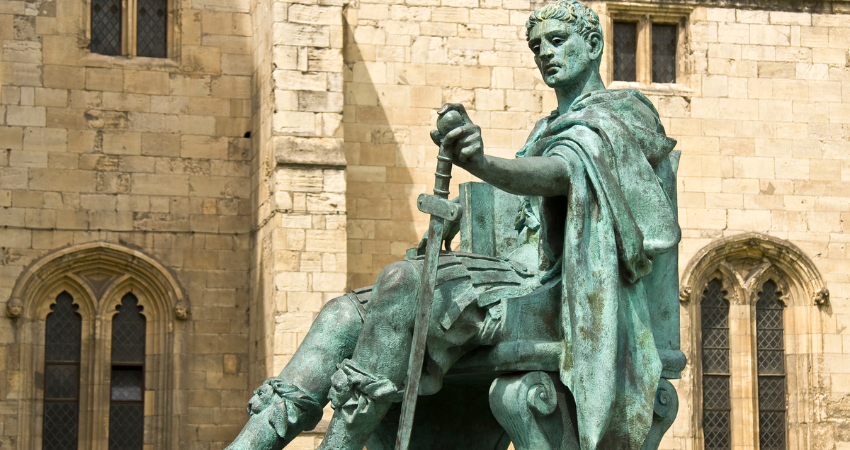The Council of Nicaea – Part 2
It is not easy today to enter the political world of the Council of Nicaea or to evaluate its legacy fairly—especially regarding the emperor Constantine. The problems lie partly with us and how we understand the role played by Constantine, who called the Council into being, determined where it should meet (Nicaea rather than Nicomedia), and possibly—even likely—set its agenda. From our vantage point, Constantine is like ‘the elephant in the room’, despite being given the title Isapostolos (‘equal to the apostles’) and being deemed a saint in the Orthodox tradition. Constantine is said to have described himself as a ‘bishop for those outside the church’.
Our misunderstandings are often layered. It is commonly thought that Constantine made the Christian faith the official religion of the empire. Were that so, then it placed the power and authority of the state in support of the church in a way that emphasised uniformity of belief (orthodoxy) and confirmed the pathway to increasing institutionalisation. It set in motion the close relationship between the Christian faith and empire that has been rightly called into question by those whose cultures have been colonised through history. Constantine becomes, in effect, the one who is deemed responsible for the rise of Christendom – an era in which Christianity and empire became closely intertwined and an expression of faith that can be far removed from the New Testament’s accounts of Jesus’ ministry.
The case against Constantine is often made but without much nuance. The fact of the matter is that Constantine did not invent Christendom. He was supportive of the Christian faith, nurtured the church, and drew upon the advice of Christian bishops and scholars—but he did not make the Christian faith the official religion of the empire. That would be done by Theodosius the Great in 381—and between Constantine’s death in 337 and 381 there were emperors who were pagan and who persecuted the church.
Constantine was, in fact, well regarded by the Christians of his day—by and large—because he offered something very different from the persecution they had experienced prior to his rule. The tendency to decolonise Constantine these days must also be handled with care. There were many cultures present in the composition of bishops—and the overwhelming majority were eastern, not western.
The dilemma leading to the holding of the Council was rather unique and without precedent. The subject of Constantine’s personal conversion to the Christian faith following a military victory in 311 remains the subject of intense historical enquiry. He was not baptised until he was on his deathbed, but that may need to be understood in light of the preparation process for baptism, which involved three years of study and discipline and study over three years. He may have delayed baptism because, as emperor, he had to make difficult judgments and was unsure whether sins committed after baptism could be forgiven.
The dilemma before bishops was that never before had there been an emperor who was ‘Christian’ in the way Constantine was. For Constantine, the issue was the other way around. There was no job description for how an emperor should act in accord with Christian beliefs. Where we are often inclined to separate church and state, that kind of distinction did not exist in the ancient world. It’s important to recognise when we impose modern standards on an ancient context. It was expected that a ruler fulfilled a religious role.
It is evident (so far as we can tell) that Constantine did take a keen interest in the debates at the Council of Nicaea. Whether he fully understood all the implications of the options before him is a matter of debate. It is possible that Constantine himself suggested the key term—homoousios, meaning substance or essence—to describe how God the Father and Christ (the Son) were of the same substance. This term became central to the Nicene Creed, but its philosophical weight and absence from the New Testament made it controversial.
The role of Constantine in this Council was ambiguous. The perspectives of today are not necessarily the same as those of most Christians of his own time. His oversight and participation in the Council represented something very different from persecution and fear. The supposition that his role led to a uniformity of belief is not borne out by the twists and turns in the politics of belief over the next several decades. To blame Constantine—or the Council of Nicaea—for all the wrongs of Christendom is not only unfair, but a misreading of history.
Assoc. Prof. Clive Pearson is a Session Lecturer at United Theological College





